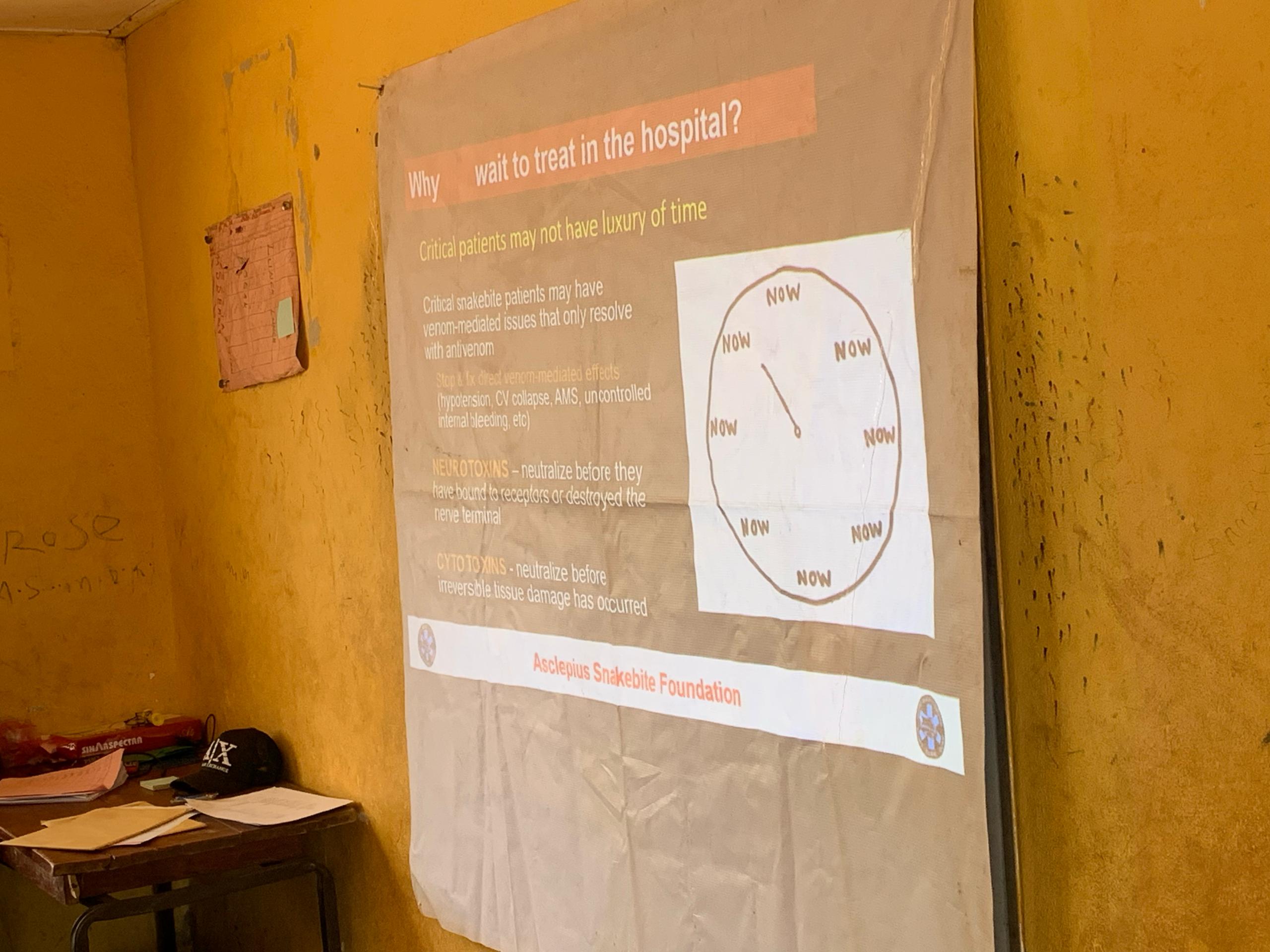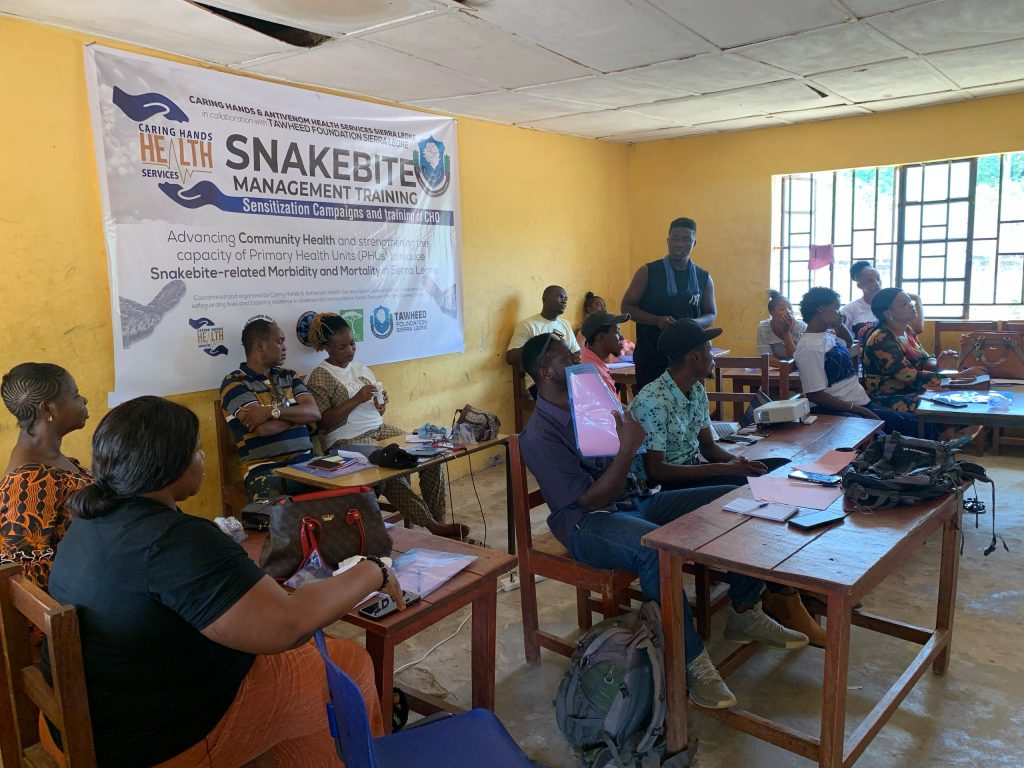Snakebite Training Report: Strengthening Emergency Response in Sierra Leone
Snakebite remains a serious public health challenge in rural Sierra Leone. In April 2025, a three-day training on snakebite assessment, diagnosis, management, and referral took place in Roshaka Community, Karene District. Sponsored by the Paramount Chief of Sanda Tendaren Chiefdom and Caring Hands Health Services (CHHS), this training enhanced the skills of frontline health workers to save lives.
Purpose of the Training
The program was designed to address the urgent need for improved snakebite management at the Peripheral Health Unit (PHU) level. Health workers in remote areas often face limited resources and lack advanced knowledge. This initiative strengthened their ability to assess victims, provide treatment, and make timely referrals.
Participants and Facilitation
Twelve health workers from different PHUs participated. The sessions were led by CHO James Bangura, who combined lectures with practical demonstrations. Bridge of Hope supported the training, showing how collaboration between local leadership and partners can drive positive health outcomes.
Training Focus Areas
The sessions emphasized four critical aspects of snakebite care:
- Correct assessment of snakebite cases.
- Accurate diagnosis and identification of envenomation.
- Effective management techniques, including first aid and antivenom use.
- Referral pathways to higher-level facilities.
Pre- and post-training evaluations highlighted strong improvements in knowledge and confidence. Participants left better prepared to handle emergencies.
Key Achievements
The program achieved significant successes:
- High engagement and participation from all attendees.
- Improved skills in recognizing and treating snakebite cases.
- Creation of a professional support network for referrals.
- Strong community backing, particularly from the Paramount Chief.
Challenges Faced
Limited access to antivenom and logistical challenges at PHUs were also identified as major concerns.
Recommendations
For sustainable impact, participants recommended:
- Making antivenom readily available at PHU level.
- Organizing follow-up supervision and refresher training.
- Strengthening coordination among health authorities, community leaders, and partners like Bridge of Hope.
Conclusion
The snakebite training in Sanda Tendaren Chiefdom represented a vital step forward in addressing a neglected health crisis. By building knowledge, improving skills, and fostering collaboration, the initiative is expected to reduce deaths and disabilities from snakebite. Continued support in antivenom supply, supervision, and community engagement will ensure lasting results.


